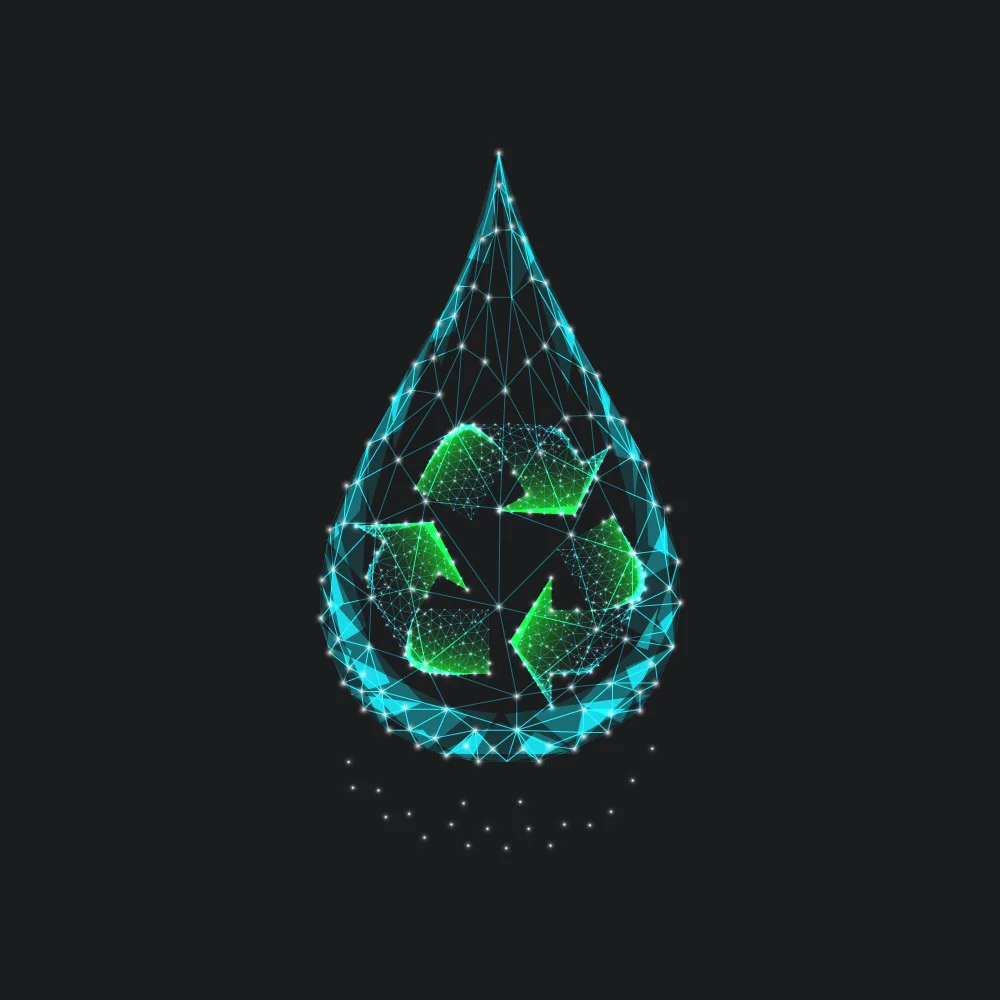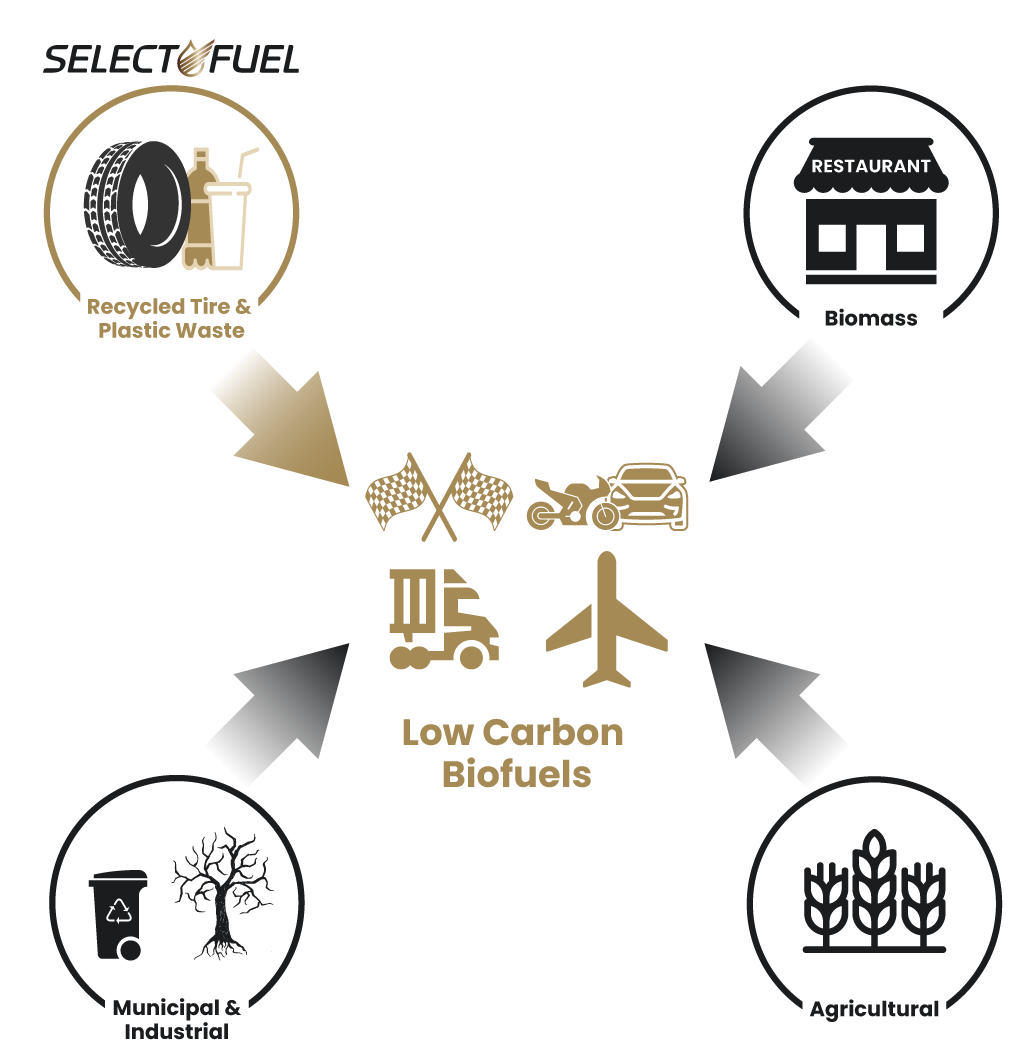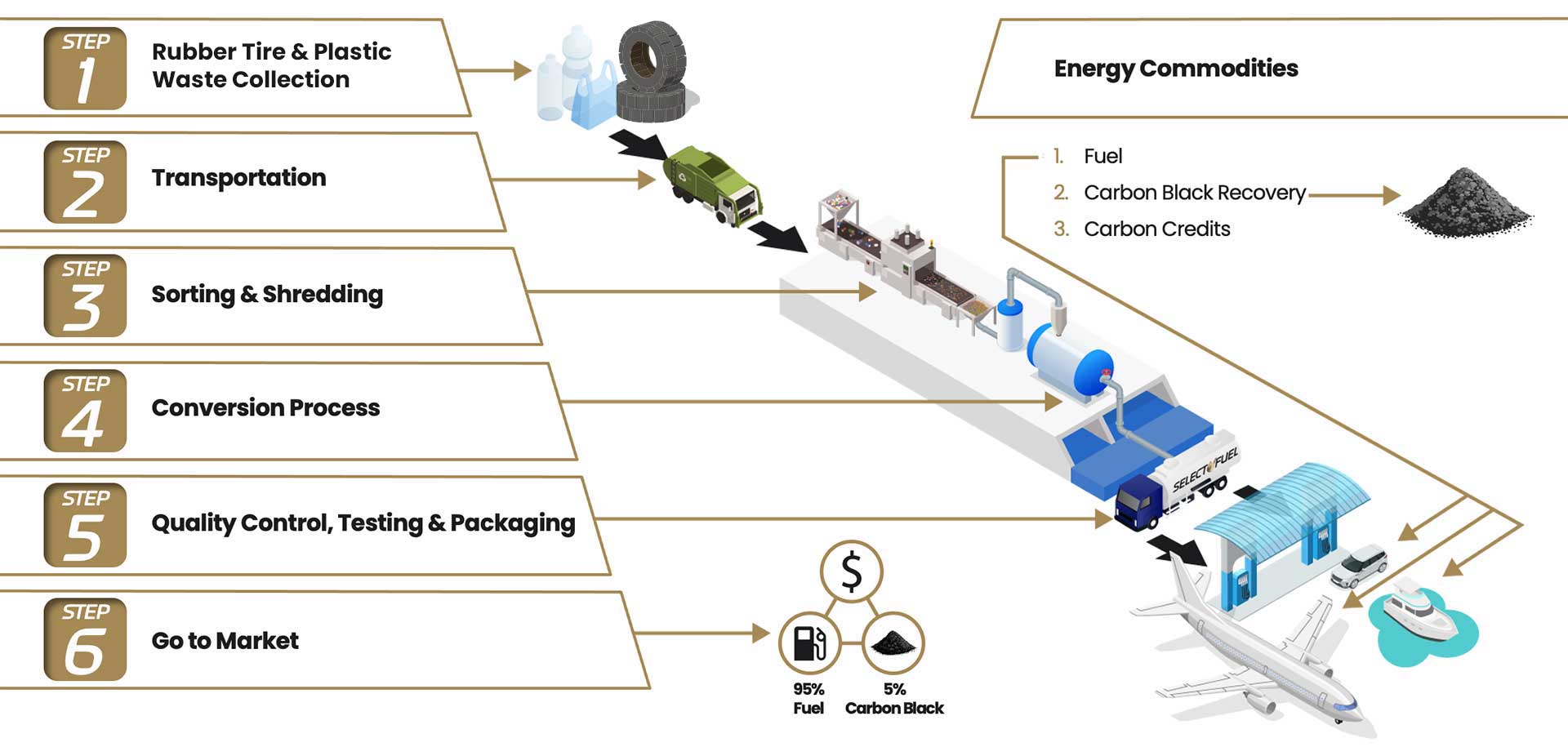
Our Solution








Technology


Through our advanced technology, we take what was once waste and convert it into a valuable petrochemical bi-product – a source of fuel for all ICE (Internal Combustion Engine) power plants.
- The global challenge of sourcing cost-effective, efficient and reliable energy has been around for as long as the plastics dilemma.
- Select Fuels’ proven and patented process can convert at least 80% of the waste into multiple bioenergy products.
- This process converts various waste products into a valuable resource and revenue stream: A GAME CHANGER.














Technology
Rubber tires and plastic waste must be treated as valuable resources.
Through our advanced technology, we take what was once waste and convert it into a valuable petrochemical bi-product – a source of fuel for all ICE (Internal Combustion Engine) power plants.
-
The global challenge of sourcing cost-effective, efficient and reliable energy has been around for as long as the plastics dilemma.
-
Select Fuels’ proven and patented process can convert at least 80% of the waste into multiple bioenergy products.
-
This process converts various waste products into a valuable resource and revenue stream: A GAME CHANGER.








SOURCES OF LOW CARBON FUELS
Low and zero-carbon technologies such as electric and hydrogen-powered vehicles are already in use. However, millions of Internal Combustion Engine (ICE) vehicles will still be around for the foreseeable future. Therefore utilizing Low Carbon Fuels is one of the only viable options for reducing emissions in the short term.
Low Carbon Fuels can be made from various feedstocks such as:
- Biomass – Inedible waste fats and oils
- Agricultural – High lipid oil energy crops like camelina or rapeseed
- Municipal & Industrial – Grass clippings, food scraps, Excess wood, agricultural, and forestry residues
- Recycled Tire and Plastic Waste














SOURCES OF LOW CARBON FUELS
Low and zero-carbon technologies such as electric and hydrogen-powered vehicles are already in use. However, millions of Internal Combustion Engine (ICE) vehicles will still be around for the foreseeable future. Therefore utilizing Low Carbon Fuels is one of the only viable options for reducing emissions in the short term.
Low Carbon Fuels can be made from various feedstocks such as:
- Biomass – Inedible waste fats and oils
- Agricultural – High lipid oil energy crops like camelina or rapeseed
- Municipal & Industrial – Grass clippings, food scraps, Excess wood, agricultural, and forestry residues
- Recycled Tire and Plastic Waste








OUR PROCESS










OUR PRODUCTS:
4 types of Biofuel we are producing from recycled waste:


LOW CARBON AVIATION FUEL OR SAF
- SAF has similar properties to conventional jet fuel but with a smaller carbon footprint


BIOFUEL for VEHICLES
- Racing Fuel
- Passenger Vehicle Fuel


BIO DIESEL
- Converting plastic into diesel fuel


CONDENSATE
- Condensate is used to dilute highly viscous, heavier oils that cannot otherwise be transported via pipelines.

